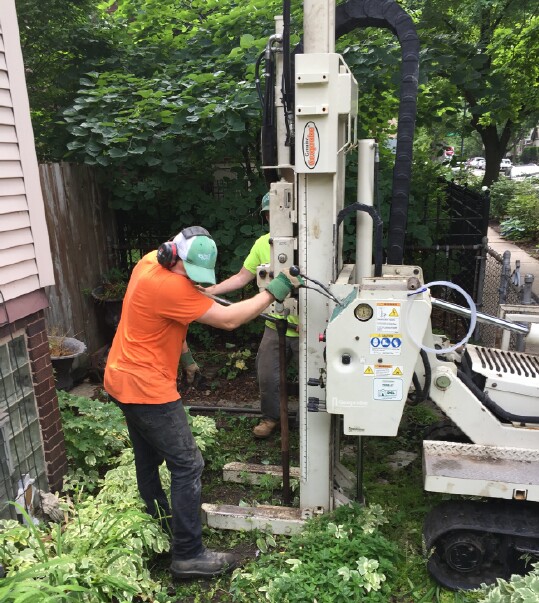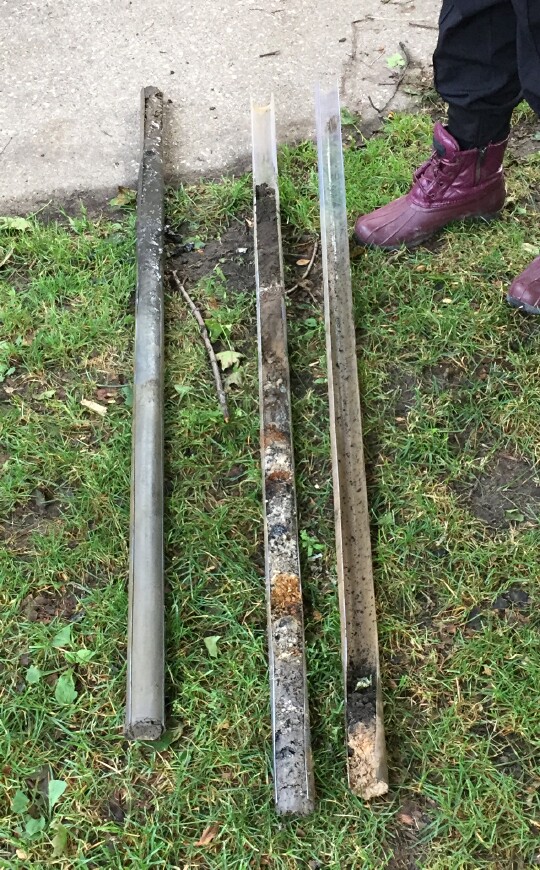This doesn’t come up very often because it’s kinda weird and relatively rare. You find a lot with an old building on it in a nice neighborhood and you’d like to build your dream house there. It should be as simple as buying the property, tearing down the old building, and building a new one. Right? You see it happening all the time around Chicago. No big deal.
Except…not so fast. If you were buying vacant land the standard contract has a clause in it that allows you to test the soil to see if it will readily support the kind of foundation you need. In addition, you are entitled to a disclosure that specifies whether or not there are any soil conditions that could make new construction more expensive and more difficult (although, frankly, many sellers will just claim to not know anything – kinda like the lead disclosure).
The added protections in a vacant land contract are not present in the standard contract for buying a building because the presumption is that you are keeping the building or that, because a building has been standing there for 140 years, putting another building in its place should not be a problem. Except, maybe you are replacing a frame building with siding with a brick veneer or solid masonry building or maybe it will have more stories – all of which are heavier. And heavier means more reliance on the underlying soil to support the foundation of the home. So you can’t assume that the soil is good for your purpose just because some building has been there for a long time.
Most of the city does not have a soil problem, which is why this doesn’t come up very often. However, it turns out that there are some areas of the city – and not just by the lake – known by the builder community to have problems. The soil is just not stable enough to put in a basic foundation. And you hear different stories about why. For instance, one builder told me that it was because, after the Chicago fire, they bulldozed (did they have bulldozers back then?) all the debris and built right on top of it. I’ll come back to that theory later. But you also hear that the Chicago area was originally swampland until they put in drainage and raised the city by several feet. So the swamp is still there?
So, whether or not you are buying vacant land or a teardown you may want to get a soil test, which costs $1500+. Here is how this works in a nutshell. They bring in a drilling rig to take soil samples in 5 foot sections – first 5 feet, the second 5 feet, etc…down to 30 – 50+ feet as necessary. A 5 foot clear plastic tube is inserted into a 5 foot pipe and placed in the rig. It is pushed into the ground, or hammered if it meets stiff resistance, forcing soil into the plastic tube.
When the pipe is extracted they remove the plastic tube and slice off maybe 1/3 of the circumference all the way down the entire length of the tube. This allows them to see the dirt and access it. They have a device that looks like a ball point pen, the “pushbutton” of which they push into the the dirt to measure how firm it is. They repeat this process in subsequently deeper 5 foot sections.
In this way they end up with a series of 5 foot sections of dirt that they can examine. In the photo below you can see the samples taken from the first 15 feet of drilling from a test we recently conducted. The tube in the middle is from the first 5 feet and we were told that is contains crushed bricks and cinders from the Chicago fire. However, at a depth of only 5 feet this should not be a problem because the foundation would not be sitting at this depth. The bigger issue is what they found at 10 feet and below. Basically there was so much water in the ground that the resulting mush wouldn’t support much of anything. In fact, given the entire soil report it is likely that construction with these conditions would require about $140,000 of additional foundation work. That’s kind of a good thing to know before you buy a lot.
#ChicagoConstruction #NewConstruction
Gary Lucido is the President of Lucid Realty, the Chicago area’s full service real estate brokerage that offers home buyer rebates and discount commissions. If you want to keep up to date on the Chicago real estate market or get an insider’s view of the seamy underbelly of the real estate industry you can Subscribe to Getting Real by Email using the form below. Please be sure to verify your email address when you receive the verification notice.

